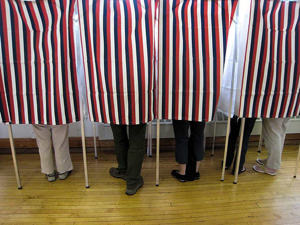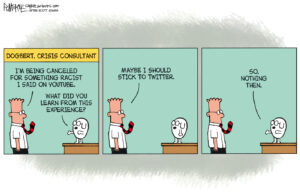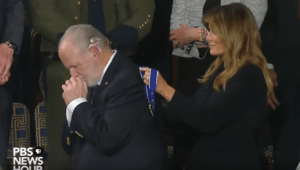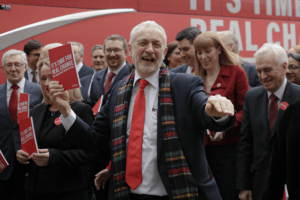Study: To Win Votes, Motivate Your Base
Numbers from a recent Pew Research Center study contradict the conventional thinking on independent voters Independents are not moderates who can be swayed to the right or left with appeals to moderation and centrism, but "disaffected political partisans" (more).
Numbers from a recent Pew Research Center study contradict the conventional thinking on independent voters. Independents are not moderates who can be swayed to the right or left with appeals to moderation and centrism, but “disaffected political partisans” (in the words of the Daily Kos), rebels unhappy with the politicians and parties they feel have betrayed the issues they care about most.
In a related study, those who reported “leaning” toward liberalism rated as being stronger supporters of gay marriage, universal health care and the right to choose than self-identifying Democrats. Based on that data, the prudent political scientist will win independents by making hard right or left turns in the campaigns ahead, rather than keeping to the middle of the road. –ARK
Your support matters…Daily Kos:
Pew Research Center released a study of independent voters last (May) that may help refute the Washington conventional wisdom. That CW, roughly, states that independent voters are middle of the road moderates who don’t support either party but swing their votes to and fro depending on what is important to them. They are fiscal conservatives who want a balanced budget. They are pragmatic centrists who want bipartisan solutions to every problem. They don’t like partisan bickering or political fighting. What they want is a harmonious, fiscally prudent government that doesn’t do too much or too little. Sort of a walking army of Midwestern Lutheran insurance actuaries.
The conventional wisdom on independents is, naturally, completely wrong. Independents are not a monolithic group of moderates. In fact, they are very diverse in their political opinions and there isn’t a “move to the middle” formula that will win them over. Moderates, in fact, are now overwhelmingly Democrats. Independents are, for the most part, disaffected political partisans.
… It is highly unlikely that folks who lean toward either party, and remember the vast majority of independents lean, are going to swing their votes to and fro between the parties. What is likely, however, is that many independents may not be as motivated to vote as strong or weak partisans. To solve this problem, the parties need to motivate them to vote. Since the matrix of issues that motivate independents will more or less coincide with those issues that motivate party partisans, political strategists should do something counter-intuitive to the conventional wisdom: To win independents, motivate your base.
Independent journalism is under threat and overshadowed by heavily funded mainstream media.
You can help level the playing field. Become a member.
Your tax-deductible contribution keeps us digging beneath the headlines to give you thought-provoking, investigative reporting and analysis that unearths what's really happening- without compromise.
Give today to support our courageous, independent journalists.






You need to be a supporter to comment.
There are currently no responses to this article.
Be the first to respond.